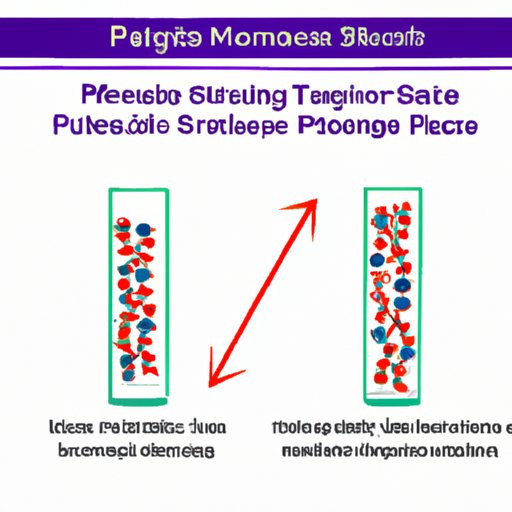
Introduction
MPS disease is a genetic disorder that is characterized by the deficiency of enzymes that are responsible for breaking down mucopolysaccharides (MPS). This deficiency results in the accumulation of these substances in cells, leading to a wide range of health problems. This comprehensive guide is aimed at providing a thorough understanding of the MPS disease, including its causes, symptoms, diagnosis, and treatment options. The article is intended for patients, their caregivers, and anybody interested in learning more about this debilitating disorder.
Understanding MPS Disease and Its Impact on Patients: A Comprehensive Guide
MPS disease is a collection of metabolic disorders that are caused by the excessive accumulation of MPS (also known as glycosaminoglycans or GAGs) in different organs of the body. The MPS compounds are long chains of sugar molecules that are vital for the production of various tissues in the body such as cartilage, bone, and connective tissue. When the enzymes responsible for breaking down these sugars are missing or malfunctioning, they accumulate in different tissues, leading to the destruction of organs and tissues.
The symptoms of MPS disease vary widely depending on the type, but they typically include a range of physical, cognitive, and behavioral challenges. These can include delayed growth and development, joint stiffness and pain, frequent ear and respiratory infections, sleep apnea, vision and hearing problems, hyperactivity, and developmental delays.
The impact of MPS disease on patients can be profound, affecting their ability to walk, talk, and interact with others. It can make common daily tasks challenging and limit their quality of life. For caregivers, taking care of loved ones with MPS disease can be equally demanding, both physically and emotionally.
The Science Behind MPS Disease: What Happens in the Body and Why
MPS disease is caused by a genetic malfunction that impacts the enzymes responsible for breaking down the MPS. In people with MPS, the missing or malfunctioning enzymes lead to an abnormal buildup of MPS within the cellular structures of the body, resulting in tissue damage.
Most types of MPS disease fall under the category of lysosomal storage disorders (LSDs). Lysosomes are specialized cellular compartments that contain enzymes responsible for breaking down waste or unwanted cellular materials. When this process is disrupted, as occurs in MPS disease, the waste accumulates and engorges the lysosomes, causing the tissue damage that characterizes the disease.
Breaking Down the Types of MPS Disease: Symptoms, Diagnosis, and Prognosis
There are several types of MPS disease, with each type caused by a deficiency in a specific enzyme responsible for breaking down MPS. The symptoms and severity of MPS disease sufferers may vary depending on the type of MPS disorder they have.
The different types of MPS disease include:
- MPS I (Hurler, Hurler-Scheie, and Scheie syndrome)
- MPS II (Hunter syndrome)
- MPS III (Sanfilippo syndrome)
- MPS IV (Morquio syndrome)
- MPS VI (Maroteaux-Lamy syndrome)
- MPS VII (Sly syndrome)
The diagnosis of MPS disease typically involves a series of tests to confirm the presence of the disease and determine its severity. These may include blood tests, urine tests, imaging tests, and tissue biopsies.
There’s no cure for MPS disease, but with appropriate treatment and care, many individuals can manage their symptoms and live longer, fuller lives. Treatment for MPS disease will usually aim to manage the symptoms of the disease, and where available, therapies such as enzyme replacement or hematopoietic stem cell transplantation.
Living with MPS Disease: A Personal Account of One Patient’s Journey
Living with MPS disease can be challenging, both physically and psychologically. Patients must manage many symptoms and limitations, and their experiences can vary significantly from person to person.
A patient’s journey with MPS disease can be an emotional rollercoaster, with moments of sadness and frustration punctuated by moments of joy and hope. For many, the support and love of family and friends can make all the difference, providing a source of strength and resilience.
From Diagnosis to Treatment: The Latest Developments in Managing MPS Disease
Recent years have seen significant advancements in the diagnosis and treatment of MPS disease. Treatment options are available to help manage the symptoms of the disease, and research is ongoing to find more effective and targeted therapies.
Enzyme replacement therapy (ERT), stem cell transplantation, and gene therapy have shown promise in the treatment of MPS disease. ERT replaces missing enzymes via infusion, while stem cell transplantation replaces the bone marrow through which the deficient enzyme is produced. Gene therapy aims to restore the function of faulty genes that cause MPS disease.
The Importance of Advocacy and Awareness in Addressing MPS Disease
The advocacy and awareness surrounding MPS disease are essential for supporting patients and their families who are affected by the disease. Advocacy efforts involve lobbying for policies that support research into the disease, improved medical treatments, and better health care services for MPS patients.
There are several advocacy organizations that play a role in offering support, organizing awareness campaigns, and funding research into MPS disease. This help to raise public awareness of the disorder and provides much-needed support to patients and their caregivers.
Conclusion
The MPS disease is a complex, life-altering disorder with physical, psychological, and social impacts that cut across all ages and backgrounds. Learning about the condition and the latest advancements in diagnosis, treatment, and support can help improve the lives of patients and their caregivers. By increasing awareness of the disease, continuing to advocate for its treatment and recognition, we can help to make a difference in the lives of those impacted by MPS disease.





